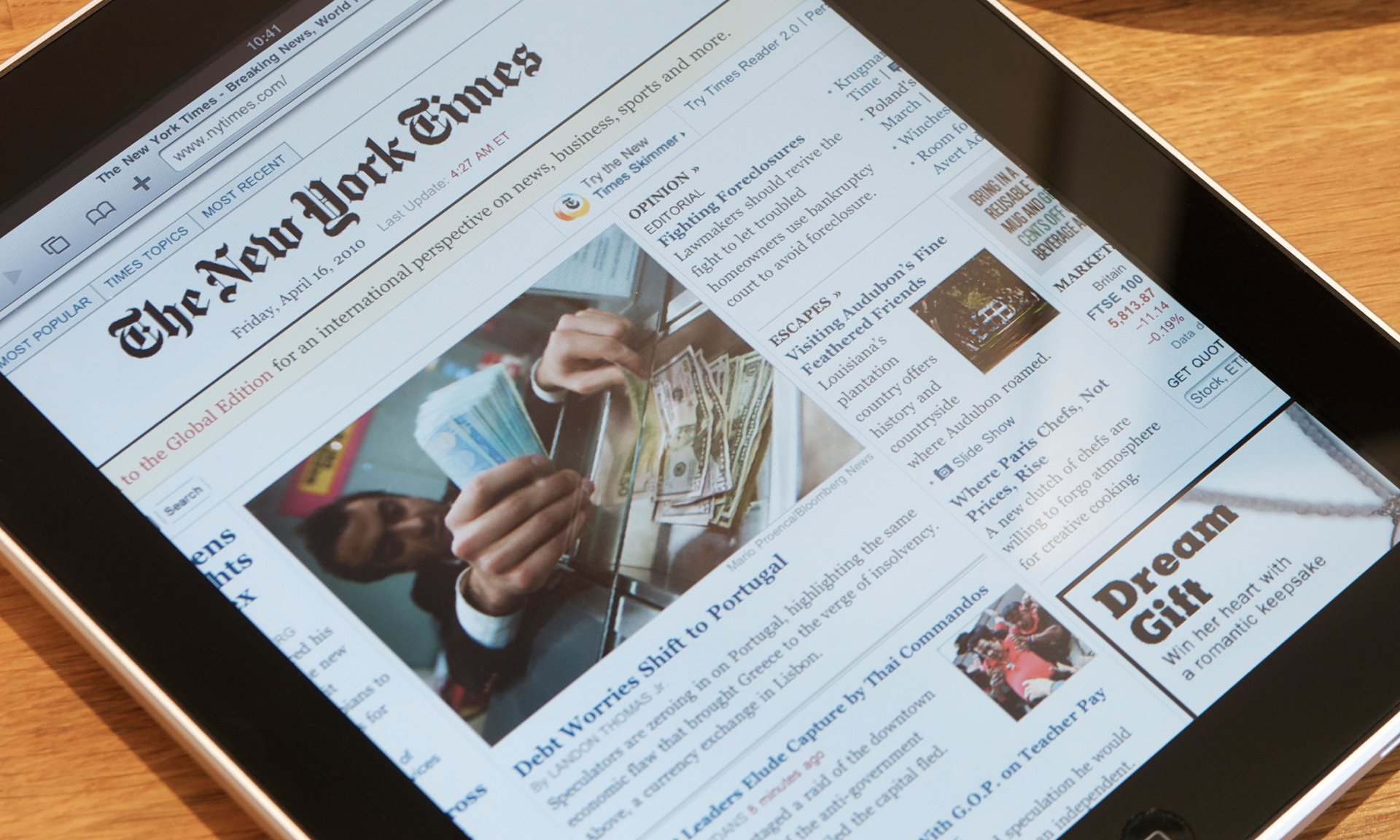Company says it will not offer news site in app store because it has been told by Beijing it is in ‘violation of local regulations’
Hone Kong, January 5, 2017:Â Apple has removed the New York Times app from its store in China after a government request, in an example of how far the company will go to please the authorities in its third-largest market.
China operates what is thought to be the largest internet censorship regime in the world, blocking thousands of foreign websites viewed as a threat by the ruling Communist party. Google, Twitter, Facebook Youtube and Instagram are all inaccessible.
Apple removed the English and Chinese-language versions of the New York Times app on 23 December, although it was not immediately clear why.
“We have been informed that the app is in violation of local regulations,†said Carolyn Wu, an Apple spokeswoman. “As a result the app must be taken down off the China app store. When this situation changes the app store will once again offer the New York Times app for download in China.â€
She declined to specify the violations or how the company was told. The New York Times has asked Apple to rethink the removal, the paper quoted a spokesperson as saying.
In 2016 Apple publicly rebuked the US government for attempting to force the company to unlock an iPhone that belonged to a suspected terrorist. The Apple CEO, Tim Cook, said at the time that complying with the government request would be “setting a dangerous precedent that threatens everyone’s civil libertiesâ€.
The Guardian app was still available on the China version of the app store, as were the Chinese-language versions of the Financial Times and the Wall Street Journal.
The New York Times’ website has been blocked in China since 2012 after the paper published an article detailing the wealth of former prime minister Wen Jiabao and his family. Accessing the website, along with other blocked sites, while in China requires the use of special software designed to circumvent government internet controls.
After the website was blocked, people instead turned to the New York Times app to read articles. Despite the app’s removal, users who had already downloaded it were still able to access NYT stories.
Rules published by China’s Cyberspace Administration in June 2016 ban apps from “publishing or disseminating prohibited information or contentâ€.
Casting a wide net, the regulations state that apps cannot “engage in activities prohibited by laws and regulations such as endangering national security, disrupting social order and violating the legitimate rights and interests of othersâ€.
This is not the first time Apple has been forced to shut services by the Chinese government. The company closed its book and film delivery platforms in April 2016 after China’s media censor intervened, and Chinese users trying to access the News app are greeted with the message: “News isn’t supported in your current region.â€
China is Apple’s third-largest market, bringing in revenue of $8.8bn in the company’s fourth financial quarter, just behind all of Europe. But sales have slipped 30% in the past year amid increased competition from domestic rivals.
The Apple CEO, Tim Cook, has made frequent trips to China in what many have called a charm offensive aimed at recapturing lost sales – as recently as 2015, revenue from China had been running ahead of European income.
In May 2016 Cook announced a $1bn investment in the Chinese version of Uber and in October Apple established its first research and development centre in Beijing. A second R&D base costing $45m is planned to open during 2017 in the southern city of Shenzhen.
By Benjamin Haas







